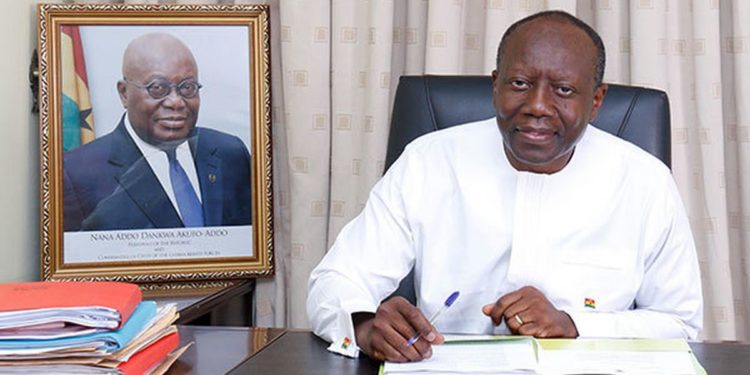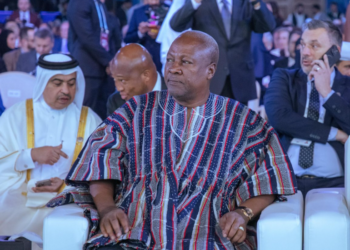Fitch has seen a deterioration in Ghana’s national finances.
The international credit rating agency ascribed this to the economy’s fall to ‘CCC’ from ‘B-‘.
“The downgrade reflects deterioration of Ghana’s public finances, which has contributed to a prolonged lack of access to Eurobond markets, in turn leading to a significant decline in external liquidity.
“In the absence of new external financing sources, international reserves will fall close to two months of current external payments (debits in the current account) by end-2022,” Fitch said while announcing the downgrade on Wednesday August 10, 2022.
Fitch said that the arrangement between Ghana and the International Monetary Fund (IMF) is expected to occur within the next six months.
According to Fitch, a program may disburse up to USD3 billion and unlock budget help from other multilateral lenders.
“In July 2022, the authorities reversed a long-standing position against seeking IMF support. Fitch believes that a deal with the IMF is likely within the next six months. We estimate that a programme could disburse as much as USD3 billion and unlock budget support from other multilateral lenders.
“However, the timing of such a deal is uncertain and would be dependent on the government’s ability to present a credible fiscal reform plan in line with increasing government revenue and improving debt affordability metrics.
According to the most current IMF debt sustainability review, done in 2021, Ghana has a high risk of financial distress and is susceptible to shocks from market access and high debt service costs.
The Ghanaian government declared its intention to seek financing from the IMF on July 1.
This followed a telephone call between the President and the Managing Director of the IMF, Miss Kristalina Georgieva, in which the President conveyed Ghana’s resolve to engage with the Fund, according to a statement issued by the Ministry of Information.
The Finance Minister Ken Ofori-Atta has previously said on many occasions that the government will not return to the Fund.
The IMF staff delegation headed by Carlo Sdralevich ended its visit to Ghana with the Ghanaian government on Wednesday, July 13, and stated, among other things, that the conflict in Ukraine is affecting Ghana.
The delegation came in the nation on July 6 in order to evaluate the present economic situation and discuss the general outlines of the government’s Enhanced Domestic Programme, which might be backed by an IMF funding arrangement.
At the conclusion of the mission, Mr. Sdralevich issued the following statement said “Ghana is facing a challenging economic and social situation amid an increasingly difficult global environment. The fiscal and debt situation has severely worsened following the COVID-19 pandemic. At the same time, investors’ concerns have triggered credit rating downgrades, capital outflows, loss of external market access, and rising domestic borrowing costs.
“In addition, the global economic shock caused by the war in Ukraine is hitting Ghana at a time when the country is still recovering from the Covid-19 pandemic shock and with limited room for maneuver. These adverse developments have contributed to slowing economic growth, accumulation of unpaid bills, a large exchange rate depreciation, and a surge in inflation.
Read Also: KNUST to suspend final-year student over alleged rape as accomplice policeman is interdicted
“The IMF team held initial discussions on a comprehensive reform package to restore macroeconomic stability and anchor debt sustainability. The team made progress in assessing the economic situation and identifying policy priorities in the near term. The discussions focused on improving fiscal balances in a sustainable way while protecting the vulnerable and poor; ensuring credibility of the monetary policy and exchange rate regimes; preserving financial sector stability; and designing reforms to enhance growth, create jobs, and strengthen governance.
“IMF staff will continue to monitor the economic and social situation closely and engage in the coming weeks with the authorities on the formulation of their Enhanced Domestic Program that could be supported by an IMF arrangement and with broad stakeholders’ consultation
“We reaffirm our commitment to support Ghana at this difficult time, consistent with the IMF’s policies.
“Staff express their gratitude to the authorities, civil society, and development partners for their constructive engagement and support during the mission.”
SOURCE: 3NEWS


























